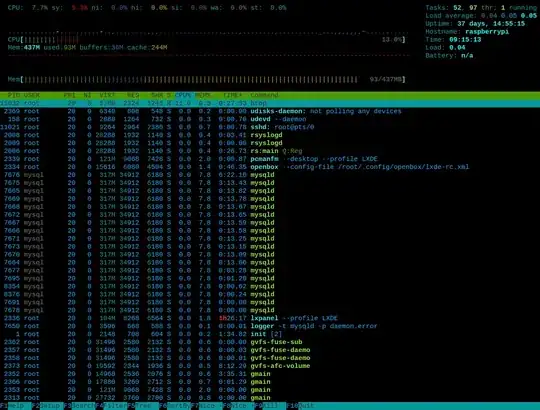If computers were much simpler, there would be less points of failure which in turn might improve stability and simplify maintenance.
Maybe so, but...
rPis are not simpler; they are off-the-shelf ARM computers which run Linux. The fact that they don't have a fan or similar doesn't make them significantly simpler in terms of maintenance or points of failure. OK they won't have a hard disk fail, but they can still have power supply failure, mainboard failure, memory errors, software errors, human errors...
You say "no moving parts"; if a machine has 10 parts and a new design has 4 parts, that's simpler. If you switch a hard disk for Multi-Level-Cell (MLC) flash storage, is it simpler? When MLC flash works, electric charge is pushed into and out of the cells, and a physical barrier holds it there in one of several states. One failure mode is when the barrier breaks down and can no longer hold multiple levels distinctly. What does it mean to say "no moving parts" when electrons are the moving parts, and the parts which work with them can physically break?
rPis are a product from a small company, squeezed into an uncommon and small form factor, designed for low-cost markets, and made from consumer-grade parts; these forces push against reliability and stability, which tend to come from not pushing boundaries of size or performance, standard designs used by lots of people (preferably companies which demand reliability and will give their requirements in advance and feedback during use), big manufacturing runs that allow for lots of feedback over long timescales (which the rPi is getting now, with ongoing model revisions), larger budgets which allow more careful designs, more testing and higher quality materials/components, and more effort in Q&A. You get stability and reliability from a tank, a jumbo jet or a plain basic car, not from a sports car, or a world's smallest car, or a world's cheapest car.
"Failure" itself isn't always a concern, it's the consequences of failure, and recovery from it, which cause problems - and rPis have no error correcting RAM, no RAID storage, no IPMI boards to help you diagnose and troubleshoot. You say "simpler means less points of failure" but then why do we use checksums and message authentication codes, and Merkle Trees, and data striping and redundancy, and TCP instead of UDP and so on? They are more complicated therefore more prone to failure ... except overall they add more failure-protection than failure, don't they? Recovering from Cryptolocker is a big problem, or it can be company-ending. But the complexity of "having a backup" makes recovery possible, even easy.
For working hardare, 'maintenance' means software maintenance, and rPis are no different from other servers in that respect.
Are you still going to put them on a UPS? Behind a locked door to protect them from tampering? Insured against theft? Backed up? Configured / maintained by paid employees? You still save, but costs are adding up.
Virtual machines are invisibly small, heatless, silent, and approximately free.
If you already have a virtual machine host, they are. If your rPi switches off and doesn't switch on again, how long are you going to spend troubleshooting it? How much time could you rent a DNS service or a hosted virtual machine for that cost of your time troubleshooting home hardware?
Ten rPis costs you $200? A traditional x86 server to use as a VM host, with dual hot-swap power supplies, dual Xeon processors, 128Gb ECC RAM, 10k SAS RAID with 10 disks, even throw in a Windows Datacenter license, you're talking $15k - no-brainer, isn't it?
A 25 person company is going to be spending $32,000/month on salaries assuming an $8 minimum hourly wage, not counting any employee overheads. Actual outgoings will be much higher covering office space, computers, phones, insurances, healthcare, any other employee benefits. Some employees will earn much more than that.
Your savings will keep your company going for another ... week?
You probably could build a redundant array of inexpensive computers - the concept is sound, Google is the big poster-child of using software redundancy to build reliable services from commodity PC hardware - but in the case of rPis, wouldn't they be a better fit in a company with one or two people working from home, funding with a credit card, not a company of twenty five people?
